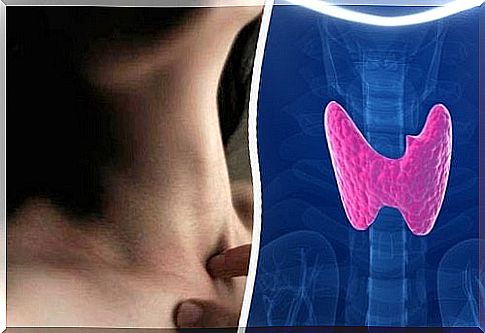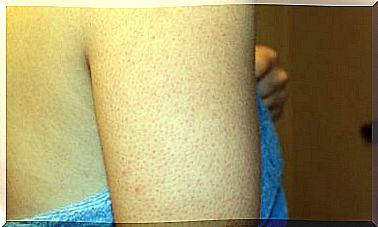What You Need To Eat To Regulate Your Metabolism

You have probably already heard about the thyroid gland and the health problems it is associated with, especially in women. If you are not sure what we are talking about, the thyroid gland is the gland in the throat, such as. helps regulate your metabolism.
This gland is i.a. involved in the production of the hormones thyroxine (or T4) and triiodothyronine (known as T3), which regulate the body’s metabolism and also have an effect on the functions of other organs.
When your thyroid gland is functioning normally, you can eat whatever you want without having to make any reservations about your diet. However, if your thyroid gland is not working properly, you may suffer from e.g. increased metabolism (hyperthyroidism), where the thyroid gland produces more hormones than it should, or too low metabolism (hypothyroidism), where it produces too little hormone. In both cases, you need to follow a special diet as diet plays an important role in improving the function of the thyroid gland and thus also your overall quality of life. The following foods can help you regulate your thyroid gland in a natural way.
Foods that help regulate your metabolism.
When one suffers from excessive metabolism, it is because the thyroid gland becomes overstimulated and therefore produces more hormone than it normally would.
The increased production of hormones causes the body’s metabolism to become very high, which can result in weight loss and muscle loss. F Olk who experience this, you should consume a balanced diet that is high in energy.
Dairy products: milk, yogurt and cheese.
- You should consume well with milk and yogurt on a daily basis. You can possibly make smoothies and get dairy products in this way.
- You can make a base with yogurt, condensed milk or whole milk powder and use it in your smoothies, desserts or even in muesli and other breakfast products.
- Always use milk or yogurt in your smoothies to get more calories and more energy.
- Eat cheese in your soups, salads, pastas and sandwiches.
Proteins: eggs, meat and fish
- Boil a hard-boiled egg and mix it into salads, pasta, soup or meals with vegetables. This can also be done with meat or fish in small portions.
- Whisk a raw egg and use it in purees, soups, sauces or even in smoothies and see how you get to feel much more comfortable.
- Experiment with different combinations of meat, fish and vegetables, or make omelettes and sandwiches with these ingredients.
Oils and fats
- Try using cream, butter, mayonnaise, olive oil and other fat products in your diet.
Nuts
- Do not forget to increase your intake of nuts by putting them in salads, soups, smoothies or simply eating them raw as a delicious snack.
Sugar, honey, bread and biscuits
- You can add small amounts of raw sugar, or better yet, honey, to your smoothies, juices, milk and desserts.
- You can eat wholemeal bread or biscuits for breakfast or as a snack.
- If you like toast, try eating it with soup.
Foods that help regulate your metabolism.
Many things can make it difficult for the thyroid gland to regulate your metabolism. Too low a metabolism is another anomaly of the thyroid gland. This happens when the gland’s production of T3 and T4 is reduced. This condition is often accompanied by symptoms such as fatigue, fatigue, hair loss, drowsiness and may even be due to weight gain and obesity.
If you suffer from, or think you suffer from, too low metabolism, it is important to go to an endocrinologist as only they can monitor the thyroid hormone production and prescribe the right medication and an appropriate diet. If you suffer from low metabolism, you should follow a strict and balanced diet, which includes foods from all the major groups: dairy products, vegetables, fruits, protein, cereals, fats and more.
Foods high in fiber and low in fat
- Be sure to eat low-fat meat from e.g. chicken, veal, turkey or rabbit. White and blue fish and eggs are also good foods. These foods should be eaten in small portions about 3-4 times a week.
- If you want to include dairy products in your diet, make sure you consume low-fat versions of milk, cheese and yogurt.
- Replace sugar with stevia or honey.
- Increase your intake of fruits and vegetables , especially the kind that can be eaten raw.
- Eat moderate amounts of grains and starches, such as bread, potatoes, rice and pasta.
- Cook with olive oil, but do not consume too much of it.
- Increase your water intake by drinking tea and natural juices without added sugar.
- Use lemon juice and spices in your cooking to feel more full after your meals.
A few concluding tips
- Too low a metabolism is a condition that is very difficult to treat, so people who suffer from it should try to use light and low-fat cooking methods such as baking, cooking, steaming or cooking in the microwave. As far as possible, try to avoid food that is prepared with deep fryers and when frying and breading. Preserves should also be avoided.
- You should also increase the amount of physical activity, either by walking, running, stairs, cycling or strength training. It does not have to be a big change; everything helps – it does not take much to regulate your metabolism!
- Try to spread your meals out over the day and eat four to five servings without eating snacks between meals.
- For your metabolism to function optimally, you should never skip a main meal.









